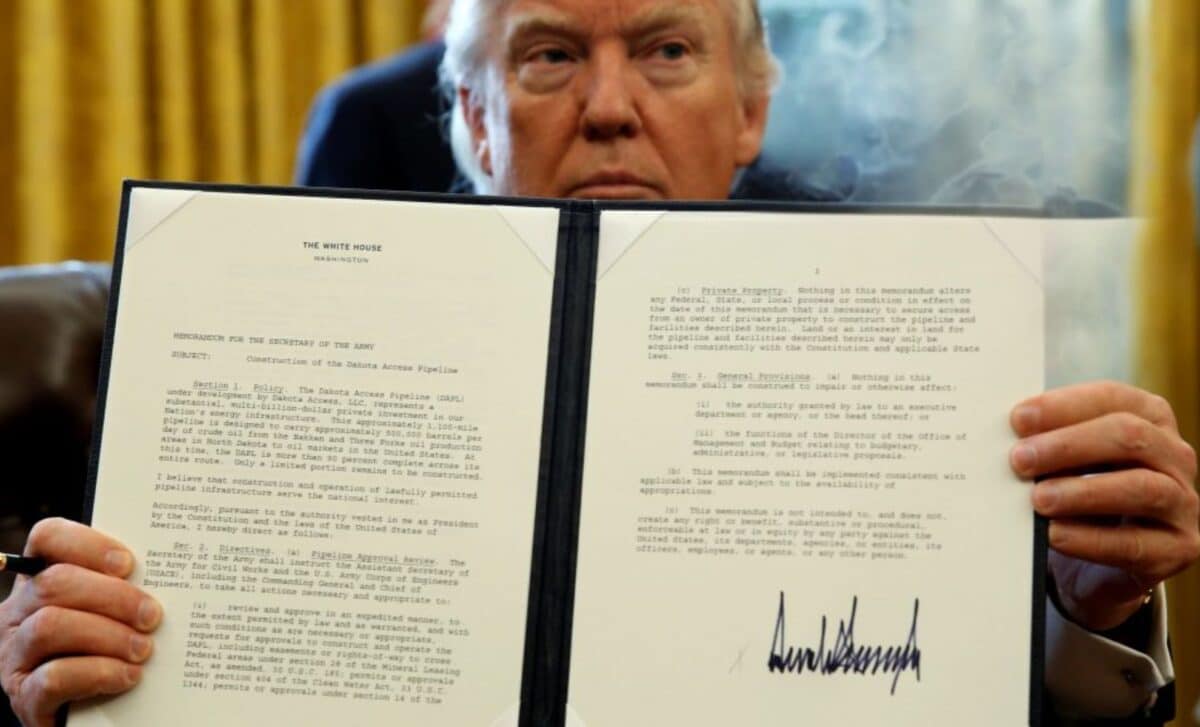President Donald Trump has signed an executive order designating English as the official language of the United States, according to reports. The order grants federal agencies and organisations receiving government funding the choice of whether to continue offering services in languages other than English.
The directive effectively rescinds a policy enacted under former President Bill Clinton, which required government bodies and federally funded organisations to provide language assistance for non-English speakers.
While largely symbolic in its impact, the move has been welcomed by English-only advocacy groups and met with criticism from civil rights organisations.
English-Only Designation Marks a Shift in US Language Policy
The executive order represents a significant shift in US language policy. According to US English, an organisation advocating for the establishment of English as the official language, more than 30 states have already enacted similar laws at the state level. However, previous congressional efforts to introduce nationwide legislation on the matter have repeatedly failed.
The order does not impose mandatory changes on federal agencies but allows them to reassess existing multilingual services. It states that encouraging the learning and use of English will create a “more cohesive and efficient society” and help immigrants integrate by facilitating economic opportunities and civic participation.
The White House has not yet clarified how the executive order will be implemented in practice. Critics argue that the removal of language assistance could create barriers for non-English speakers, particularly in accessing essential services.
Hispanic advocacy groups and civil rights organisations have expressed concerns that the policy could disproportionately affect millions of Spanish-speaking Americans, as well as other linguistic minority communities.
Reactions and Concerns From Advocacy Groups and Officials
The executive order has sparked mixed reactions across the political spectrum. Conservative figures and immigration restriction advocates have hailed it as a step toward reinforcing national identity. Charlie Kirk, a prominent right-wing activist, described the move as “a message of national unity” on social media.
Conversely, Democratic lawmakers and immigrant rights groups have strongly opposed the measure. According to United We Dream, a youth-led immigrant advocacy group, the executive order is part of a broader agenda targeting non-English-speaking communities.
Representative Hakeem Jeffries, the House Minority Leader, suggested that legal challenges could be mounted if the policy is found to contradict constitutional protections.
The decision also carries implications for Puerto Rico, where Spanish is the dominant language. Pablo José Hernández Rivera, Puerto Rico’s non-voting congressional representative, stated that the order conflicts with Puerto Rican identity and could complicate the island’s relationship with the federal government.









